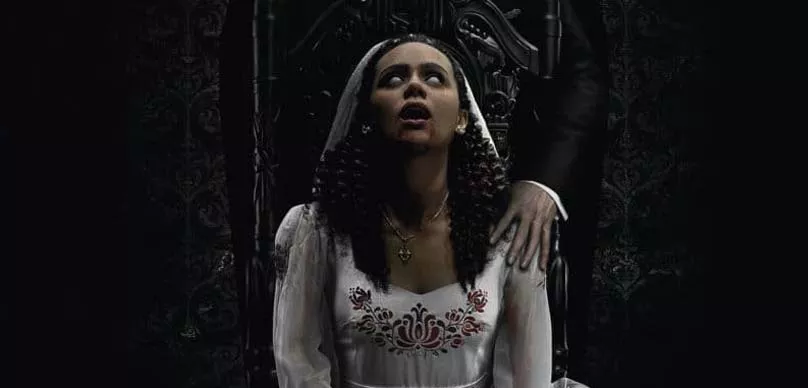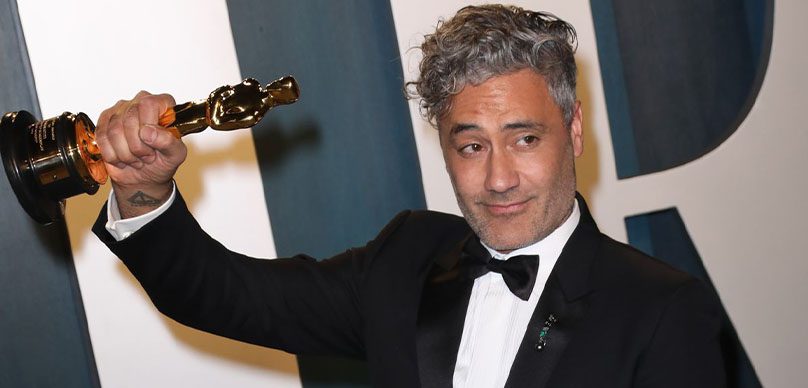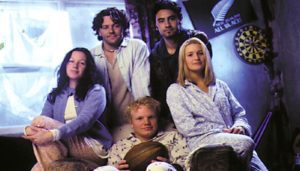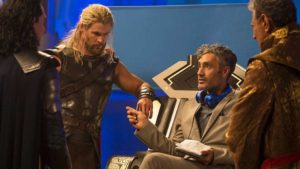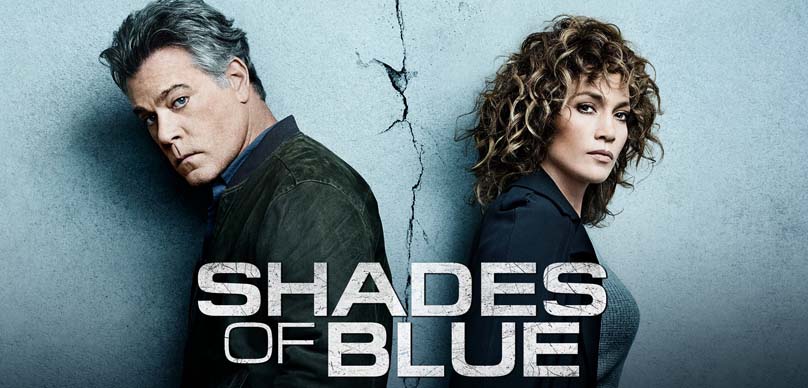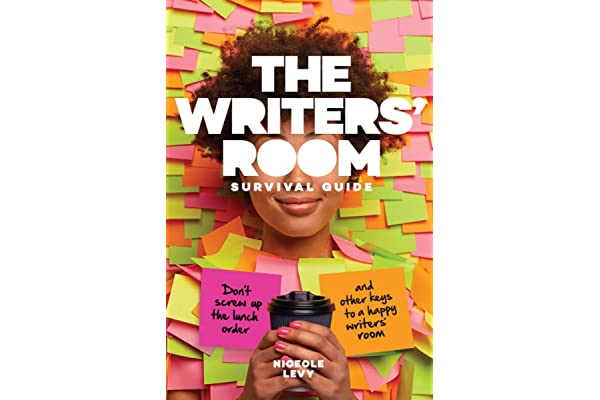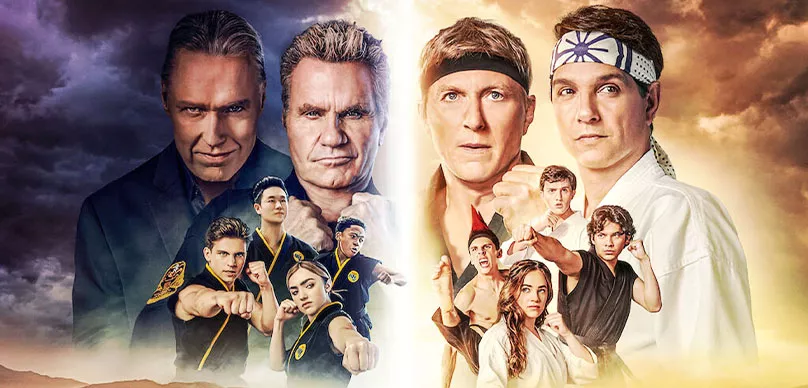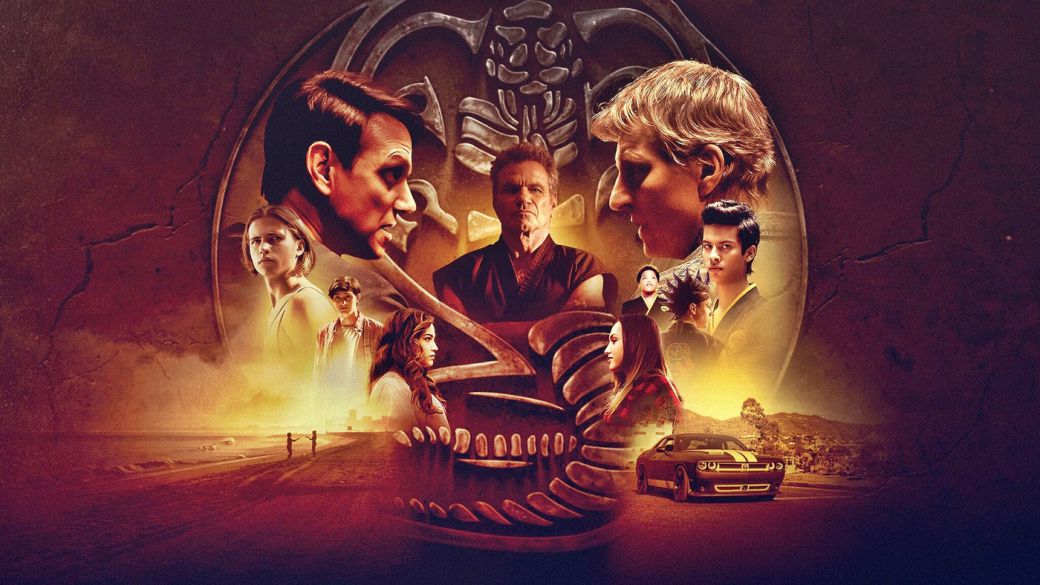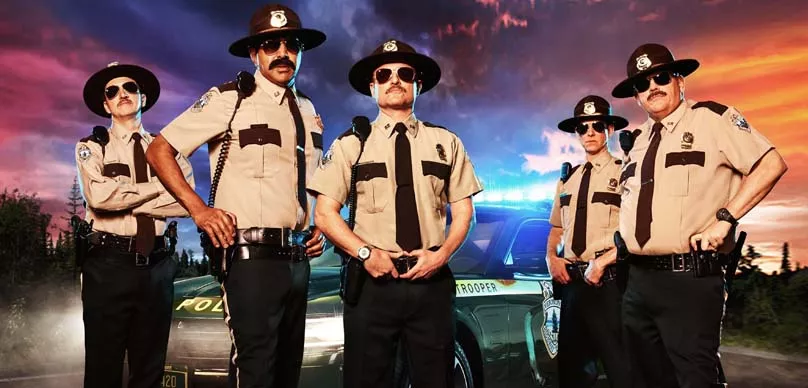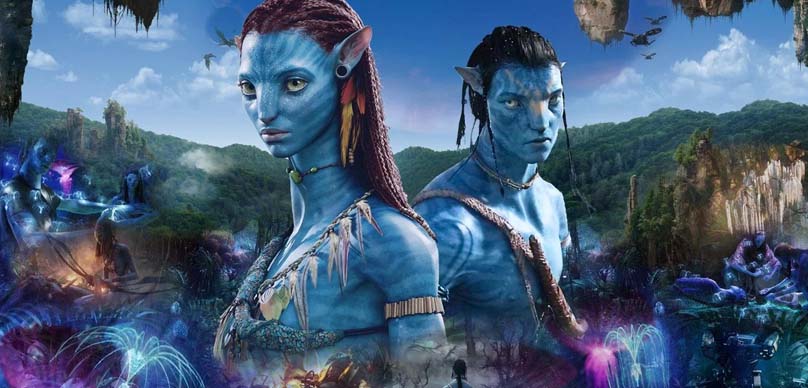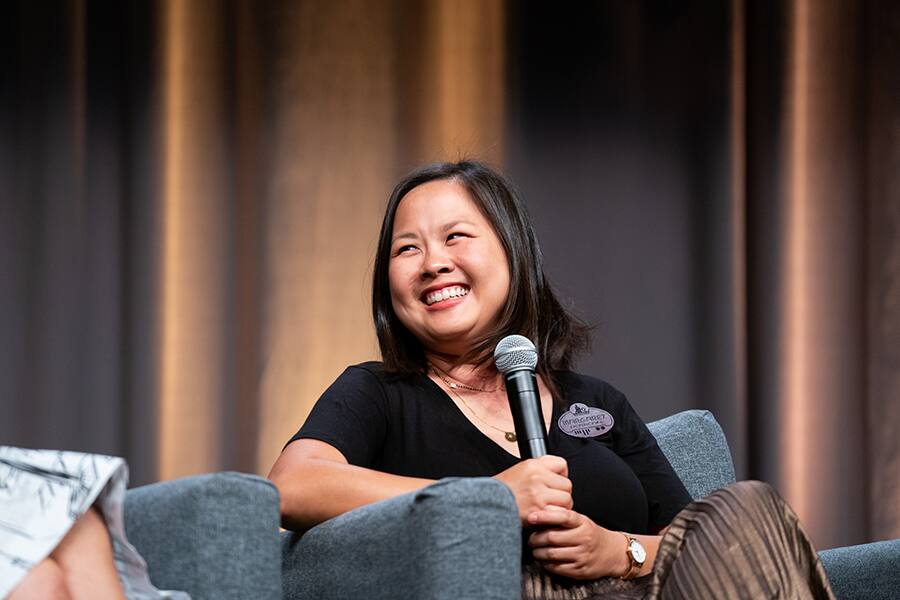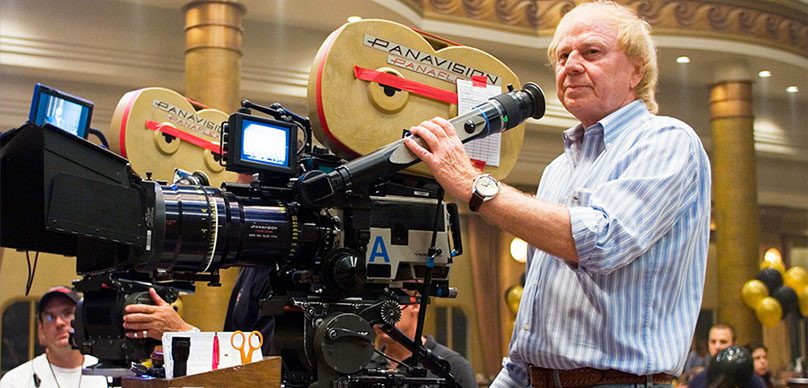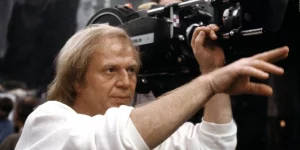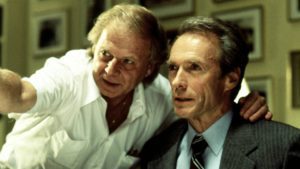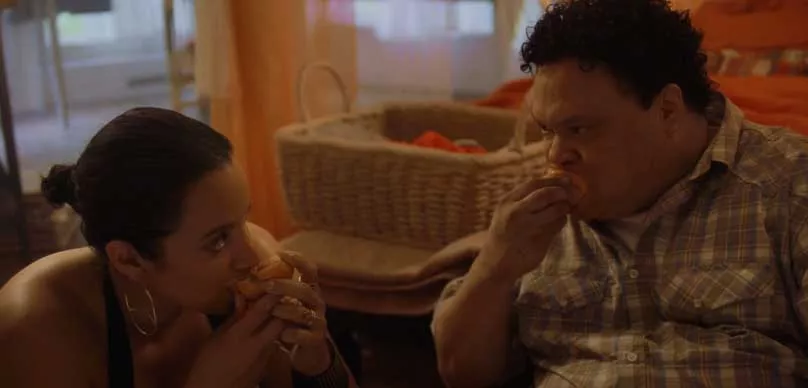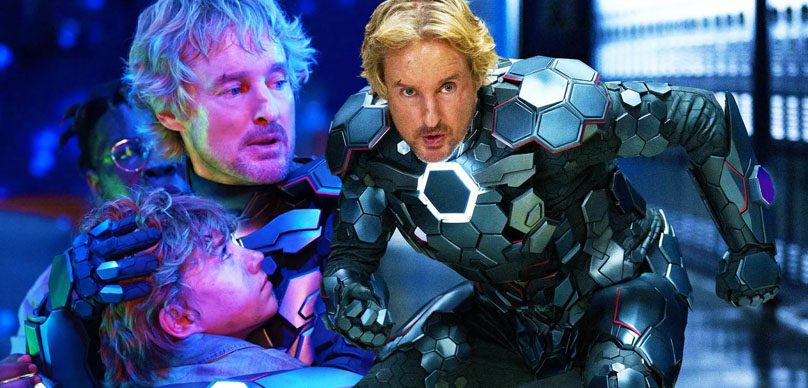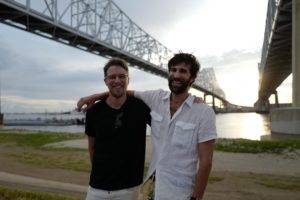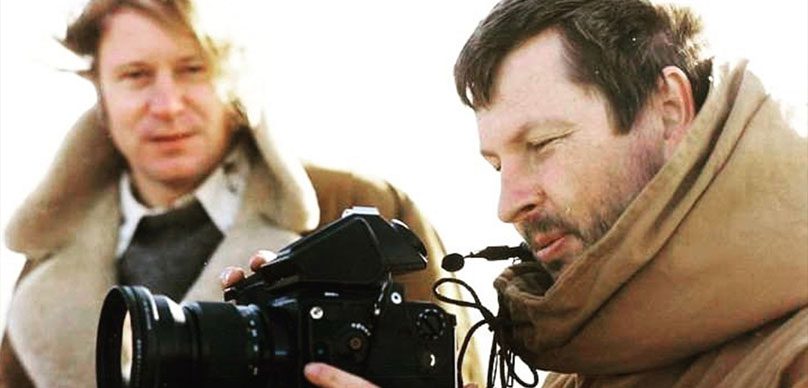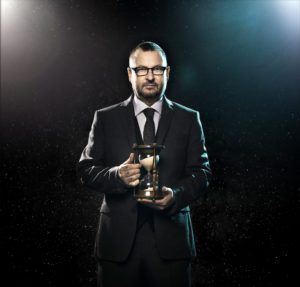Jessica Thompson is an Emmy-nominated filmmaker who made her feature writer-directorial debut with “The Light of the Moon”. The film won the Audience Award for Best Narrative Film at the SXSW Film Festival. “The Light of the Moon”, starring Stephanie Beatriz (Brooklyn Nine-Nine, In The Heights, Encanto), enjoyed a limited theatrical release to sold-out screens in both New York and Los Angeles and heralds a 97% Rotten Tomatoes score. Critics called the film “harrowingly effective” (Variety), “honest and complex” (The Hollywood Reporter), and Film Inquiry stated, “for any filmmaker this would be an unmitigated triumph, but for a first time filmmaker this is revelatory.”
Jess was the lead director on Showtime’s original series, “The End”, produced by the Academy Award-winning See-Saw Films (The Power of the Dog, The King’s Speech). “The End” is a dramedy, told through three generations of a dysfunctional family who are trying to die with dignity, live with none, and make it count. The series received five-star reviews from The Guardian and The Times.
In 2021, Jess directed her second feature, “The Invitation”, a Sony Picture’s thriller-horror, written by herself and Blair Butler. It will have a worldwide cinematic release on August 26th, 2022.
After the death of her mother and having no other known relatives, Evie (Nathalie Emmanuel) takes a DNA test…and discovers a long-lost cousin she never knew she had. Invited by her newfound family to a lavish wedding in the English countryside, she’s at first seduced by the sexy aristocrat host but is soon thrust into a nightmare of survival as she uncovers twisted secrets in her family’s history and the unsettling intentions behind their sinful generosity.
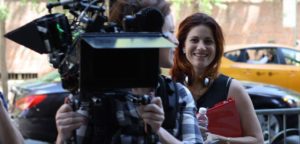
In 2010, Jess founded Stedfast Productions, a collective of visual storytellers who use film to explore the complexity of the human story.
Jess is an Australian filmmaker who resides in Los Angeles. She is repped by CAA, Kaplan/Perrone Entertainment, and Independent Talent Group (UK).
Enjoy my conversation with Jessica M. Thompson.
Right-click here to download the MP3
LINKS
- WATCH: The Invitation
- Jessica M. Thompson – IMDB
SPONSORS
- Bulletproof Script Coverage– Get Your Screenplay Read by Hollywood Professionals
- Audible– Get a Free Screenwriting Audiobook
Jessica M. Thompson 0:00
You have to keep going, you have to keep trying. Because you know, if you became you know, I think it's like a professor or whatever, you know, if you could change something else, you will never love it as much as you love filmmaking, you will never feel completely satisfied. So really what kept me going always kept making waking me up in the morning. And don't get me wrong. There were some days where I really like I really didn't get out of bed. Like I was like, just like, I had a big no, after working so hard for free. And that's something else that they don't tell you, especially with directing how much work you do for free before you get a job.
Alex Ferrari 0:30
This episode is brought to you by the Best Selling Book, Rise of the Filmtrepreneur how to turn your independent film into a money making business. Learn more at filmbizbook.com. I'd like to welcome to the show. Jessica M. Thompson. How're you doing Jess?
Jessica M. Thompson 0:45
I'm doing great. How are you doing?
Alex Ferrari 0:47
I'm doing great. Thank you so much for coming on the show. I am excited to talk about your new project the invitation which is just insane. It's insane. It's beautiful. I want to talk to you about production design. I want to talk about how you got that. Everything I want to talk about all that stuff, because it obviously wasn't done for five grand. So
Jessica M. Thompson 1:05
I've moved on. I've moved on in the world from my little indie films that I made for, you know, $100,000.
Alex Ferrari 1:11
You know what, but that that those are the ones those are the ones who get you started. And you probably learned you've learned Christ so much in that $100,000.
Jessica M. Thompson 1:20
Oh, no. And I actually do think that restriction helps you be more creative. You know, like, you've got to stretch that bother you got budget, you've got to make it work, you know, and that's why indie filmmakers, so entrepreneurial, you know, there's so they'll make any budget stretch.
Alex Ferrari 1:35
I mean, you have to I mean, there's no choice in the matter, kind of like you're against the wall when you're an independent filmmaker, because, you know, there's no one's show, there's no as as Mark Two plus as the Calvary is not coming.
Jessica M. Thompson 1:46
That's right, it's you. And that's why I mean, I'm sure it was my first film, I was like the writer, the director, the editor, the producer, I also was the Social Media Manager, I did the posters, instance you end up wearing every single hat. But by that, by that, what's great about that, as you get to know every single aspect of the industry, you know, and so that makes you better informed. And so that's why I always whenever there's like, executives that I meet with and they're a little bit hesitant about hiring an independent filmmaker to do either TV or whatever. I'm like, You don't understand how you know, we're scrappy, scrappy, resourceful, you know, independent filmmakers, if you need to film you know, seven pages, eight pages, nine pages in a day, we'll do it.
Alex Ferrari 2:24
There's no question. No question. So my first question is how and why in God's green earth? Did you want to get into this insanity that is called the film industry?
Jessica M. Thompson 2:33
I mean, that's a great question. But to be honest, I was. I come from a family that is not you know, in the creative arts by any means. My mom, first generation Australian, my mom is from a tiny little country called Malta. And yeah, so we grew up very much blue collar roots. She's a single mom, I have three siblings, you know, and I at 12 years old, I watched Brave Heart. And I decided, I want to tell stories. on film,
Alex Ferrari 3:01
How old were you when you watch Braveheart?
Jessica M. Thompson 3:03
Well may may 15 Yeah, I can't remember the year but made me think that I was 12 years old. It was one of those blockbuster Fridays, you know, where you every family goes down to Blockbuster and picks them here in the new big here. It was like Braveheart. So we all watched it. And because like I said, I was the youngest of four right before the end. My mom was like, Jess, she paused it and was you know, I can spoil Braveheart. Everyone should have watched it. But right before William Wallace gets like hung drawn and quartered. She pulled it she's like, Jess, you're too young for this go to bed.
Alex Ferrari 3:34
Really? Now. Now?
Jessica M. Thompson 3:35
I was like, no, no, you can't do this to me. And so as I say, as we say, in Australia, I checked the tanti like fruit and stormed upstairs and I had this I did this crazy thing where, you know, there's big old school alarm clocks. This is before the internet came before mobile phones, yeah. Before iPhones or whatever. So I set my alarm clock to 230 in the morning, and I put it inside my pillowcase. And it so that it would wake me up at night, wake up the rest of the house. And I crept downstairs, and I rewound it and had to rewind because it's VHS, and I had to like not watch what happened around it and watched it. And then I was just I was like, that's it. I want to that's it. The story just moved me so much. I just wanted to tell story. So I opened up the Yellow Pages.
Alex Ferrari 4:21
How is that possible? You look like you're 20 my dear. How is that possible? You don't even know what a yellow?
Jessica M. Thompson 4:27
I'll take. I'll take that. I'll take the couple of bucks. But yeah, so I opened up the Yellow Pages. And I looked up Film, film schools, like in film, like, you know, places to go to. And like I said, we grew up on welfare like I didn't, you know, we had, luckily the government of Australia is very, you know, kind to its citizens. And, you know, and my mom couldn't afford it. So I went to work at Toys R Us to pay for my screenwriting classes by acting classes, my directing classes, and I've never looked back. I've never wavered.
Alex Ferrari 4:55
So the fascinating part about that story is that at the end, is when your mom said you No, I think this will be a little bit too much for you, not the not the decapitations, or the legs being cut off, or any of anything.
Jessica M. Thompson 5:08
No horse dying.
Alex Ferrari 5:12
The horse dying
Jessica M. Thompson 5:14
100 horses that died out.
Alex Ferrari 5:16
You know what's so funny about that movie that horse dying sticks out in so many people's head even though it's a fake course, obviously. But it sticks out in people's head more than the 1000s of men. Well, you know, that was?
Jessica M. Thompson 5:28
Well, you know, Francis Ford Coppola with apocalypse. Now, that whole scene where he picks up the Labrador puppy, and they hold the gun to its head. That's the thing that people remember. And like, you know, in his whole point of putting that in was like, we have become so desensitized to the death of humans and the violence against humans. And it's such a great way visual way to tell that and of course, as soon as that happens to everyone in the theater, I mean, I was, I am a bit too young. I did not watch that in the theaters.
Alex Ferrari 5:53
But then, when he was when he was slicing, I think they were killing it. Was it the calf or the cow while they were killing? Marlon Brando? Again, sorry, spoiler alert, guys, if you have, it's not our
Jessica M. Thompson 6:03
Failure on movies that everyone listening to this podcast would have listened to it, I would have watched it.
Alex Ferrari 6:08
If they haven't. It's not my fault that these are prerequisites. These are prerequisites. So alright, so when you when you started going down this journey, I'm assuming coming from Australia, the Hollywood just called you right and just said, Hey, can you come over? Do you want and how much money works.
Jessica M. Thompson 6:25
So like, you've got like a really great accent. Let's like you're here, you're in New York. So what happened was at 18, I went to film school in Australia called University of Technology, Sydney, they have a really good film film program that was super hard to get into. I was the only kid from that side of town, just I know, people listening might be more American skewed. But I come from like the not pretty Bondi Beach part of Sydney, basically. So I used to have to commute to university an hour and a half there an hour and a half back. Yeah, but I was with all these posh yuppies, whose parents were in the film industry already. So I already hadn't had to, you know, compete with these kids. And I just put my all into it. You know, we went to a technological film school. So we had access to 16 millimeter cameras, we have access to digital, you know, everything I learned to edit on a Steenbeck originally, you know, and that was just to show us the trade. That's not because of my age. Yeah, you know, and so we made a film almost every month, like you had access to every URL to, you know, you know, industry standard equipment, and recording studios and things like that. So you're encouraged to use that as much as possible. And I just did, I just dived in and like, did it. And it's through university, through film school that I really fell in love with editing. And I realized how important editing is to, you know, to crafting a story. It's basically, you know, the three storytellers, the writer, the director, and the editor, you can make a completely different film in the edit room, right. So so then I just, I looked at some of my favorite directors, and a lot of them have an editing background like you know, Jordan, Cohen, Kurosawa even you know, like so I decided after that to go into editing, it felt like a bit more of a clear path and doing the production hustle. That being said, I've also done you know, production managing and things like that. But yeah, so I got into editing climbed up the ranks, only doing commercials and music videos at that point. Did one documentary and then and then I kept applying I kept making short films. I kept applying for grants in Australia you most things get done through the government there which is called Screen Australia. It's like our I don't know it's like really anything to get anything made in Australia. And I just found I couldn't I couldn't break in in Australia. I couldn't it's a smaller industry obviously. But we have a lot of American productions that come down there which is great you know, we have the doors and you know, the Batman's whether they go but come down there and shoot our commands and stuff. So but that's not really if you want to be a writer director. That opportunity Yeah, because it's the they're gonna bring the American directors and stuff so
Alex Ferrari 9:02
So let me ask you because your path is similar to mine because I started in the editing world as well. That's how I learned the AVID. I did Steenbeck I thought it was the
Jessica M. Thompson 9:11
I did the I did the AVID as well. I can say that was nice. Just for like, you know,
Alex Ferrari 9:16
It was in my school they taught me they taught me our dad taught me nonlinear editing, online editing. And then they took me to a Steenbeck I'm like, Are you just what you savages? Like what is this that you want me to film with a scissor or razor and it was just it was mind blowing to me like and you want me to put tape on and if I'm kind of on the fence, but if you really liked the cut you glue it are we like how is like it would blow my mind
Jessica M. Thompson 9:47
And to do a crossfade you like actually like crossfade it? Oh my god,
Alex Ferrari 9:52
What is what is going on? By the way I have to ask I have to ask because in America in every film school in the country when You use the Steenbeck you always use the same footage. It was just stock footage, the same one. It was an episode of Gun Smoke. No, that was Was it okay. I was wondering what that was. Because every from USC to NYU to my little school down in Orlando, they all used the Gun Smoke it because when I talk to other editors or other filmmakers, I kind of see my digital gun smell. Yeah, that's what we did.
Jessica M. Thompson 10:26
Guns. Mike is getting some residuals from this. But nothing smokes it.
Alex Ferrari 10:31
Okay.
Jessica M. Thompson 10:33
We had to, we shot on it was our own films, we stop and fix. Oh, wow.
Alex Ferrari 10:38
Yeah. So yeah, so I did the same thing. And I because I wanted to be a director. So I was like, I'm gonna go through the editing process, because that's like, I don't want to be on set because I did the set thing. And waking up at three o'clock in the morning for like, 50 bucks to be a PA and then just sitting somewhere in the not even near set in the mud somewhere, driving, telling people where to park that's like, this sucks. This is not well.
Jessica M. Thompson 10:59
And also, when you think about it with editing, you're one step away from the I mean, you're right there, you're working with the directors, you're working with the producers, actually. So therefore, you know, when you're a PA or you know, you're so far you never meet those people, you never even get to interact with them, though. It's great experience. Don't get me wrong, I think everyone should pay the dues. And you know, you know, work on sets as well. But I think it's like, I don't know, I found editing to be a bit more of a clear a defined path for me. And also, I mean, it's an incredible skill to know, and it helps you as a director. So
Alex Ferrari 11:28
Massively, it massively helps you as a director. So let me ask you that, how did you make the trip? How do you make the transition from Australia to the US? What what was that? Because I think that's where the interesting part is in your story, because you had to come up. It was tough in Australia, but now you're a little fish in a very big pond out here. So how did you make that transition? And how did you even just get work and survive?
Jessica M. Thompson 11:50
Yeah, so I was 24. When I moved over to the States, I got to LA for six weeks and was like no, not for me. At the time, I now do live in LA but at the time, LA is a brutal place when you don't know anyone I literally knew nobody in the state 00 connections. I started to go on a road trip for nine months. And I visited 40 states and all a lot of Canada, Canada as well. And I filmed this was during the 2009 kind of financial crisis. And I shot a little like kind of documentary road story, meeting some of the people that I met, you know, on the way and things like that never finished that. So, but it was really fun. I really got to know I think the US, you know, my new my new home, and I landed in New York, it was a bad decision in that I really used up a wall with my money on that road trip.
Alex Ferrari 12:39
Don't beat yourself up. You're 24 We were already there.
Jessica M. Thompson 12:41
And I slept I slept in the back of my car. I like made a very, you know, I did it. I did a very low key. But yeah, I got to New York and New as the second I made in New York. I was like, this is this is my home city. I love this place. And yeah, like I said, move there with very little money. And I because I had these skills of an editor. I started to get freelance work as a commercial editor. But of course, knowing that I wanted to kind of transition into features. So I actually took a step back in my career and took an assistant editing job with Liz Garbus. The, you know, she's done a lot of great documentaries. She did the Nina Simone one recently on a HBO film called there's something wrong with that, Diane. And then what was great is she brought me into her next film, which was called Love mountain and and that was actually a narrative documentary hybrid. And so he brought me into edit that one. So then I got to, you know, a new that I started to get. Yeah, so then I was off. So then I started to get a lot of editing. And being a bit which is a bit easier for women documentarian and filmmaker in the industry and the feminists are definitely like, much more common and more accepted. So it felt like a little bit easier to break in, in that regard. And I feel documentary and narrative. They're all storytelling right there to me, they're not we put such a divided between them, but especially in terms of editing because you just get all the footage and then they're like, Okay, make a story. Like, okay, so with the, for instance, the Greg Louganis documentary that I edited HBO Yeah, like that had archival from like multiple Olympics. And I should say my brother was an Olympian. So that's why I was really interested in like this, you know, what happens to our Olympians once they've kind of done and especially when, you know, Greg, being queer and HIV positive, he really didn't have an easy go though. He's like, the best diver in the world. So I was really interested in that story. But then we had sit down interviews, then we had buried a footage and it's literally like, craft the story. And that was really, you know, in terms of screenwriting, that's a really incredible process to go through. You know, it's a really great skill to know. Yeah, and then basically, I felt I'd made another short film in New York, and then I felt ready. I had written a lot of the moon I realized a lot An idea is actually bigger than a lot of them. They're shocking, shocking, shocking. So a lot of them are more sci fi or more genre based. And I have a joke that my friend that I made day one of film school color below, where he's produced all of my short films and produced the light of the moon with me. And he I have enjoyed that. He said to me, Okay, Jeff, you've got two characters in six locations now, right? Something like, he was like, you keep writing things that are just too big to make, like
Alex Ferrari 15:29
45 locations five, five company moves in a day? Yeah, got it.
Jessica M. Thompson 15:33
Yeah. Yeah. So he's like, that's all that's all we'll be able to fundraise, you know, so we did this, I did that then a lot of the men came to be, unfortunately, because it happened to a friend of mine. And and I said to her, I haven't seen this story told in an authentic way, you know, about a woman's recovery and about how it affects her relationship to work. But also, when she really doesn't want to be the label of a survivor or victim. Like she's like, No, she just wants to, she wants to keep a sense of humor. She wants to like, you know, she doesn't want her friends to worry about it like, and I just thought that was a really interesting modern story. And one that had not been very well. So I wrote it. And then And then yeah, we made it from $100,000.
Alex Ferrari 16:14
And you know, it did its job because it got you your new film the invitation. But before we get to the invitation,
Jessica M. Thompson 16:21
I want to say that everybody in that in we'll get back to that every single person who in the light of the moon, I'm so glad that their star has risen because of that film, from the producers, to the actors to the you know, to the hair and makeup artists. Everyone you know, I love that when you when you everyone puts their heart and soul into something and it really pays off. Yeah.
Alex Ferrari 16:39
Now you also did the apprenticeship on The Handmaid's Tale, which, to be fair, not a bad apprenticeship. I mean, if you're going to do one, I would have liked that that would be nice. So
Jessica M. Thompson 16:51
What I told my rep, I mean, so that was the light of the moon and I met my managers at South by Southwest, which I really was ill prepared for like, I did not realize how much film festivals I just like a meat market. Sorry, I should say that.
Alex Ferrari 17:04
It is at the top guys like Sundance South by Tribeca, like some of the big boys. They are something like that. But yeah, if you got a movie in there, you'll get.
Jessica M. Thompson 17:12
Yeah, you also and we sold the film at the festival, which sometimes doesn't happen. We were very fortunate that it did happen to us. So you're having those meetings, you're meeting lots of managers. And I was like, Whoa, this is like I thought I was just gonna go and watch 100 movies. No, I saw like three films. It was so sad. Yeah, so I met my reps there who have just been incredible supporters of mine. And I said to them, I really want to do an apprentice and I want to do it on The Handmaid's Tale, and they made it happen. Now I will say like as glamour it was fantastic. And I really like helped me. And, you know, it was an incredible experience. But what they don't tell you is that you pay your way you pay for the flights you pay for your accommodation. It's expensive and it's really it shows you how classes this industry is you really so I really went into the red that year. And I'm very grateful that because I came up in commercials that I had a little bit of savings behind me but I'd really I mean, I'd maxed out my credit cards to make the film. I donated my eggs. To make the film
Alex Ferrari 18:10
I found another one I had a I had a filmmaker who came on to donated her eggs and Sanyo Hara of course Anya Yes, she was in life. She was in my last movie. She was the star of my last movie.
Jessica M. Thompson 18:21
Yeah, she's my best friend.
Alex Ferrari 18:24
Sonya is amazing. I love it.
Jessica M. Thompson 18:26
Yeah, but we did it. We actually donated our eggs separately, did not know each other and then met and we were like, Hey, you must be the only other person to have done.
Alex Ferrari 18:35
So So what were some lessons you picked up on The Handmaid's Tale, because that's a heck of a set to be on.
Jessica M. Thompson 18:40
Yeah, I mean, it was really like that scaling up of all the ideas that you have, right. So it's like, you know how to do it, you know about doing it on that scale and doing it with that timeframe doing it with that amount of departments that amount like this. So many people, it's like such a well oiled machine, that show an actor's really know their characters inside and out. So a lot of your work as a director, if you're coming in episodically is already done in terms of, you know, your actor, it's not like you're doing extensive rehearsals or anything like that, because unless there's a specific scene that's like a little bit novel or something. So, yeah, I mean, I learned so much about the pace of TV, and like, and how quickly everything news and how well I mean, I learned how your first ad can really make or break a day like news like that. Oh, yeah. And really saw that come into action. You know, it's basically taking what you know, and doing it on a small you know, obviously, we had 15 days to shoot the London and so then going from that and scaling up and having, you know, five days in 12 days and episode for an hour, you know, 13 days an episode is like such a joy in such a you know, but you've got to make sure those days are running really smoothly. Yes, I learnt a lot I'm gonna learn about Michael Parker, who was the director I was shadowing was an absolute legend. And he really kind of showed me his process and how we goes about kind of formulating the story cracking the story of figuring out. And also, you know, the biggest thing I learned was that the scripts come in the morning. And it's crazy that like, to me, I've always had the privilege. And luckily, even with my TV series, the end that I did sound stress had written every single episode before I even came on board. So that's, that's a big privilege in the TV industry, you know, and a lot of the time you're, you've got the idea of the episode, you're told, they were like, you're told what kind of locations you'll need. But you quite often won't have a final script or the morning that you're shooting. And that I told me that I have to kind of relinquish control sometimes and just go with the flow.
Alex Ferrari 20:40
Wow, that's yeah, it's, it's, I've been on many sets on direct TV sets. And it's, it's amazing how insane it's a well, it's organized chaos, in so many ways, because everybody knows what they're doing. The machine is running. But stuff like that happens. You just like, and then the actors just go, they just learn their lines quickly. And I mean, isn't it wonderful? Because I mean, you've worked in the indie space, and you've worked with in the professional like really high end professional space. It's been a wonderful when you get to work with like, quality professional actors, that just Oh, yeah, that you just don't have to, like, learn your lines, man. You know, your mark, man. Like none of it. That's all they just know what they're doing. You basically are just there to capture the lightning, as I say.
Jessica M. Thompson 21:24
I mean, consummate professionals, it really does make a difference right?
Alex Ferrari 21:29
Now, when you first walked on a set as a director, in a professional manner, not your indie project, but in a professional set of a television show something, what was that day like for you, because at that point, you've already got a handful of hours under your belt, you know, you know, hundreds of hours, probably under your belt of being on set one way, shape, or form, plus all your experience in the editing room. But that first day, when they're like there's a check at the end of the week for you. And you're walking and you're like, I gotta run this whole thing. And these guys all know, hell a lot more than I do. Probably. What was that feeling? Like?
Jessica M. Thompson 22:05
I mean, first of all, I never sleep the day before. So it's just I always try I try every technique, I get the lavender scented candle down. And I you know, you know listening to hypnosis and sleep stories and things. It doesn't matter, none of it, I take a yeah, all the melatonin and none of it works. I will just I just know now that I will be up all night. And it's fine. Because the next day you just done pure adrenaline, right? You have it that first day was probably was on the set at the end. And I mean, it's such a it's your, your heart is buzzing, you're you're just saying what the smell of your face. But also there's like a nervous energy, there's a nervous, you know, anticipation, to, you know, your all the things that you've been working towards, or the things you've been studying over, or that now it's coming into play. And I can feel you know, there's this kind of it happens on every set, where the kind of executives and the producers they all kind of lean in a little bit. They're all a little bit like, Okay, this you know, we know this one was incredible. We really love her work, but is she does she have the goods and then I love that throughout that first day when that first like kind of take and at first, you know, the scene starts to come together, and whatever. And I love feeling that relaxed moment where everyone's just like, Oh, she knows what she's doing.
Alex Ferrari 23:22
Okay, good. She knows what a camera is. She knows what an actor is fantastic.
Jessica M. Thompson 23:25
Yeah, she knows how to make it look great. She knows how to get the right performances. Fantastic. And so I love when there's that moment when I feel that element of trust is like, okay, she got this.
Alex Ferrari 23:35
So let me ask you, because so, so many people don't talk about this. And this is something I love talking about on the show, the politics of the set. Nobody talks about the politics of this, especially when you're a young director, someone coming in for the first time when you're dealing with some of these veterans on set. I had a script supervisor who was questioning me on set when I was on a job. And I had already been directing for quite some time. But she didn't know my resume. This is pre internet as pre IMDB. So nobody knew that, you know, just to see as young director, and she was giving me crap every second and she was questioning me in front of other people every second. And she had been around forever and I had to deal with I had to pull her aside. I'm like, look at you know, either get on board or get off the set. And I had to put her in her place. And then with after the first day, we I think we had it this is an insane amount of setups, but I must have done between the two cameras about 70 or 80 setups. And in a 10 hour day, I move really really quickly. And because of being an editor, I just, I just know what I need. So I just have probably at the end of the day, I found out that the producer had sent her in as a spy, to make sure I was doing it Ken is this guy capable of doing this job? And then at the end, she's like, No, he's perfectly fine. You could do the job. But this is the kind of stuff that you've got You don't talk about so how did you I'm assuming in your career, there's been a one or two times that some a crew member, a DP or a production designer or scripts, or first ad, push back or their ego got out of control, and you had to kind of step up, what was that like and how you deal with those kind of political situations.
Jessica M. Thompson 25:21
I mean, it's luckily the more and more that I've gotten on and then less and less that happens, which is fantastic. But yes, there was definitely something a little bit I'm sure the structure but like young filmmakers and female filmmakers, I don't think I know it's crazy. But I come in and I'm pretty we have a word that bolshy, which I don't think really translates that bad. Like, you've got good stuff. I think I've got a lot of good stuff. So I think they I think there's a little bit of respect already that's done it but I will say the people that I have the usually have the biggest problem with his gafas. Yah, grips blessa. But for some reason gafas they usually come from these kind of old school. Tough guy on the set, yeah, got it. Exactly. Drinking beer out of there, like, you know, camo pack. And things I love to take the peace and love to shoot the cheered, I love to you know, I can, I can, you know, keep up with the best of them. But sometimes I just think there's a moment where it's, there's always been a bit of like, Look, you need to you need to, you know, chill out, and you need to like, listen to me, and you need to stop this. Luckily, I will say I've worked with incredible first, they think they have a real knack for picking a person ID. And I've always, you know, gotten along really, really well. My first they didn't have always had my back and always kind of helped me navigate those situations. And that's another reason why a first idea is worth their weight in gold, because they really protect the director from some of those situations. You know, and I will say in the commercial work because I do commercial directing as well. DPS in that are certain type of animal, and I cannot handle the talkback, I cannot and I have a like now I just have a no alcohol policy. So if someone is really doing that, then no, I don't have time for you, like, get off my set. And you know, luckily, I'm in a position where I'm allowed to do that. But even even with the invitation, you know, there's always there's always here's what, here's what I say I'm so good at picking my hods I made sure that we have such similar tastes and sensibilities, I look at their bridesmaids. I love what they do. And I make sure that, you know, we've got we've got, it's like a mind meld, right. But there's always going to be focused on at the time we disagree. And I think that those 5% is really telling of a person's character and personality. When how because I love to collaborate. I love to I want to hear your ideas and why you want to do it that way. And at the end of the day, I'm the director, like, you've got to, you got to, you got to do what I say. And so that was you know, and I won't name names, but there was some times aren't even on this set, where I was like, Oh my gosh, like we just at the end of the day, I understand where you're coming from, but this is where I'm coming from, you need to just do it. But it is it is odd and I wish it's getting like I said it's getting less and less. And I really do respect everyone having their own in their opinions, but it's when it's in a disrespectful manner. And I will say I want to put shout out to the Hungarian crews most respectful crew up there in Australia and America nothing compared to the Hungarian cruise. I was like wildly impressed with how much respect that and then you got it you can imagine that it's a very male dominated crew. It's still I never felt like anyone was didn't think that I was capable or you know, everyone, everyone really respected me that even called me Madam Director, which I thought was a fun.
Alex Ferrari 28:38
That's actually adorable. I love that. I would like to serve director that would be nice.
Jessica M. Thompson 28:44
I was like guys need to stop. I've no no keep going.
Alex Ferrari 28:47
But no by you please more more of that, please. No, it's important to put these kinds of stories out there because a lot of directors will walk on set not even know that this is a situation that because I remember when I first got on set, and I had to address something like that I wasn't prepared. I just you're just not told about this. You don't have the tools or the ammunition to kind of deal with it. And if you've got an older you know, you got a gaffer who's been in the business for 40 years is like when I worked with Coppola. I'm like, What do you like? And you're like, 25
Jessica M. Thompson 29:19
Yeah, exactly. And that there was a reason why you've been hired right? There's a reason was because the the producers they trust on your vision, you know, someone or the financier is or whoever it is someone you are the person with the goods, right, and you're the person that hires all these people. So I think as long as they there's great respect and I you can tell straight away when someone respects you or not. So I mean, I find it pretty early on, if I feel like someone's gonna be a problem like and I've never, you know, it's only happened once where and it wasn't like a big wasn't a gap or anything, but I could just tell that it was like, someone in the camera team wants that. I was like, No, this guy he won't look me in the eye. He won't, you know, he like kind of mumbles every time I asked him something, you know, I'm like, we need to replace him. Like it's just not gonna work right, right. But mostly, mostly people were so excited to make films people want to, you know, succeed in your vision, especially if after like after a couple of days and they realize that you're, you know, you're not doing the stock standards. Why move close, like or something and I feel and I feel
Alex Ferrari 30:18
Isn't a fun isn't it fun when you put when you push as a crew and you're like, Okay, well, so we're gonna do we're gonna do the shop like Kubrick did, like, oh, it's like, you know, and you'll end up only using about three seconds of that of that 32nd shot. But yeah,
Jessica M. Thompson 30:31
Exactly. I know, we have this incredible crane shot. And then we go to a ronin handoff and do so joyous when you get this, like the CRO crew working together seamlessly. And the act is knowing that. Yeah, but also like the energy in the room when you finally achieve it. Without one, you know, it's
Alex Ferrari 30:49
It's remarkable. Now, is there anything that you wish someone would have told you at the beginning of your career? Like if you could have a chance to go back to the young Jess, listen to we just snuck down to watch the Braveheart ending. And go Look, honey, you're gonna be in the film industry. But this is you need to know this.
Jessica M. Thompson 31:10
Yeah, I mean, there was something that I would the first thing is, I wish I could just tell myself everything is going to be okay. Because I honestly used to get so when you know, and I'm sure you the same, like when you're working so hard on the script, and you get so close that you don't get it or you're pitching on a job and you don't get it and the amount of noes, right everyone thinks that, you know, your, your success, they look at your resume, because she's had like an ad or something like that. There's so many nose for every yes, there's like 100 nose, right. And I just wished because I used to get like so you know, upset and destroy and like wonder whether I was being a fool. And like whether I was chasing just a dream that was not going to eventuate I will just go back to school, but maybe you need to go through that right? And maybe you need that energy that I get up, get you up in the morning, but I wish I could just let go give me a hug and be like, it'll be okay. It's gonna
Alex Ferrari 32:00
Just keep going. Just keep going. You'll be fine. Yeah. So let me ask you.
Jessica M. Thompson 32:03
Also, though, stay stay true to your vision, like when someone is trying to push you or challenge you, or push you in a certain direction. Just if you in your gut know something is right, just really listen to your gut.
Alex Ferrari 32:15
So that's another question. I love asking people because I've asked myself this question after almost 30 years doing this. What keeps what kept you going in those times? What kept you going in the nose and the nose? And I'm assuming it wasn't like a month or two, it might have been a year or two could have been years where you, you maybe get a little win, but you've got like 400 losses, like and you just you question your I think I think every filmmaker worth is waiting in salt. Wood would say at one point or another in the career, is this the right path? Am I have I made a mistake? Is this worth the pain that I'm going through? How did you? How did you keep going?
Jessica M. Thompson 32:57
It's a great question. And I I want to let people know that even before so when we we missed the deadline for Sundance. So for for the light the moon. And so the next one was sapphire that I really wanted. And we submitted to South Bend we'd already found out that we got into Tribeca, but I really wanted South pie. And because we had that pressure of knowing that we got into Tribeca we tried to set us up by could you make a decision soon because we have to let you know we have to get back into turbo, another incredible festival but I really wanted South by and they told me that they would tell us before Christmas, which is a very early to know that you're going into a much festival, but in competition, and I was waiting I remember I was in Australia with my mom because my brother had just gotten married and mum and I were on a road trip and it was like I want to say December 22 or 20 Like it felt like before Christmas it was like getting down to the wire and I remember I had to pull over the car because we were driving. So I was burst into tears and I was like Is it too late to become a doctor like bombs like it's not Christmas yet. But then you'll never guess two hours later I get an American call on my cell Mike and I answered and we got in and we got into the competition so so I'm saying that happens even when you've made something that you know is good. It's still like you still have the all that doubt. But I think what got me through is sheer desperation. I never had a backup like I never was someone and I'm not saying you know that you shouldn't you know, everyone's path is different. But there was nothing else that I loved. Like there was nothing else that I could do you know, because so to me, it was like, you have to keep going you have to keep trying. Because you know if you became you know, I think it's like a professor or whatever you know if you could change something else. You will never love it as much as you love filmmaking. You will never feel completely satisfied. So really what kept me going right away kept making waking me up in the morning and don't get me wrong. There were some days where I really like I really didn't get out of bed like I was like just like I had a big no. After working so hard for free. And that's something else that they don't tell you, especially with directing how much work you do for free before you get a job. Like, it's insane. It's insane. The pictures, the amount, you know, the amount of effort the decks I'd made, you know, to get the end, I made like an 18 minute video, you know, I was like, and did like a montage of me speaking like, you know that this is how when you especially when you're starting out, right? You've got to put in so and then when you get to know at the end of doing all that,
Alex Ferrari 35:26
Or the buyer does or the money doesn't drop?
Jessica M. Thompson 35:29
Oh, you get it? Yes. And then the money doesn't come in or whatever. It's just brutal.
Alex Ferrari 35:33
It's me psychologically what we go through his absolutely brutal. So I love asking everybody from a young filmmaker, like yourself all the way to Oscar winners, everyone goes through the same process as everybody, everybody. No one is just born and thrown into the mix. They all have a level of it even even the Wonder kids like Robert Rodriguez when he's 23. You know, Orson Welles when he was, if you want to go back that far, but they all go through some sort of struggle even. Yes, most of us go through more straight.
Jessica M. Thompson 36:05
I knew, like, you know, I had this skill of editing, I knew that I could be an underdog. Like, I know, financially, I knew. I was like, but I knew that it wasn't a love, like, don't get me wrong. It's a joy. Editing is great, but it's not a deep love, you know, people who are real editors that like want to do that every single day. They've got like a deep passion for editing. And so I was like, okay, yes, sir. So I'm not going to be poor. That's not the problem. But the problem is, I'm not Am I ever going to, you know, get to tell the stories I want to tell you so.
Alex Ferrari 36:34
So let me because because this is something that only editors who turned into directors couldn't we can talk about this, I need some therapy myself. So we're gonna talk about this for a second. There's a thing about when I always said the same thing, I'm like, I need I always tell people advice when they're coming up, like what should i What job should I get, I go find a job inside the business or in the satellite of the business. So you can make connections, you can work with people, and making you know, and that kind of stuff, build those kinds of relationships. But as an editor, being in the edit room, I mean, I've delivered probably over 5060 movies in my day as an editor and colada color, I suppose supervisor, all that kind of stuff. Out of all the projects I've done on my IMDb, maybe three or four I enjoyed, like, truly loved the process. Love the filmmakers love. The rest of them are just a paycheck. Honestly, there is something about being so close to the process, and yet not being able to do it yourself. That is a frustration in that. And only an editor who wants to be a director can understand it. Do you feel the same way? Did you feel the same way?
Jessica M. Thompson 37:42
Not Yes, yes. Yes. Yes, yes. But I will say because I edited documentaries that it was and I really, and I don't have much of a desire to direct documentaries. I actually don't think I have any. Unless I mean, it depends. Maybe I won't
Alex Ferrari 37:58
Say that one that never got finished.
Jessica M. Thompson 38:00
Oh, that's why I didn't finish it. But like, Um, no, I've always wanted to direct narrative. So to me, I had that distinction because I so at least it was like a different part of my brain. Even though I truly believe that documentary narrative is all the same tool. It's all the same storytelling. It's got to start middle and end You know, it's got you know, the climax everything. But so to me, I at least never had that I want to do this i or i could do this better than you know. And, you know, this afternoon, I'm meeting up with Sheriff magenic, who's the director of back on board and so that shows you how much I loved editing that film with her. But yes, I really do especially in commercials. Okay, so, today is the day the light of the moon came out of the IFC here in New York, we you know, it was a limited release, we had 1010 or 12 cinemas around the States and North America. I was finishing up a water commercial. And they I needed to get down to the cinema like these. These people didn't know I was editing it. So these people didn't know that I had a feature film coming out down the road. And I needed to go and these people were what I am I like to swear on this podcast a little bit. Sure. Okay, okay, so I call it pixel fucking when just like people are just
Alex Ferrari 39:08
That's the term I use years ago.
Jessica M. Thompson 39:10
Yes. Because that's Yeah, yeah. And I was just, I was just like, I couldn't tell them that I couldn't do this anymore. Because I was like, and I'm not you know, I'm someone who usually is quite pleasant, but I was being so short like coming back and I literally I think I said in the room. I said in the room we're not curing cancer dies.
Alex Ferrari 39:28
Like it's enough. Oh, no, oh, no, that with commercials. You can spend weeks on on the shot of the bottle. And that just just tweaking and maybe a frame here and can we get a light there, maybe we could do a visual effect, just endless because there's so much money, they could just keep going and going. I was part of a project once that was six weeks for three commercials 3/32 commercials six weeks. I just we just have there all day waiting for clients to come in and move things here. Let's add that It was it was in absolutely insane commercials.
Jessica M. Thompson 40:03
Yeah, he's uh, yeah, so that's definitely like, but now um, yeah, I will say I really respect the edit that it has I worked with. And I think I think another thing that I don't know how you if you get their silence, but like, people think that I'm going to be really controlling over my editor. We're good. Yeah. But I'm actually the opposite. And like, No, I respect them so deeply because they are another storyteller. I literally said to Tom Elkins, who edited this, I was like, turn that director's cut like that first six weeks of that director's cut time is yours. Like, don't show me anything. You just craft the story that you can do whatever you want, and literally go with your gut, because you're going to then show me things that I didn't even think of editing that way. And that's the, that's the joy. And that's the, that's the collaboration. And he was like, wow, I thought you were gonna be like, over breathing down my neck. And I was like, No, you know, of course, there's going to be some stranger. I'm like, yeah, nice try, but let's like do it this way. But then I really, there was a couple of things, especially with the scares because he's like, you know, a horror aficionado and has, you know, edited a lot of big horror films. He really like showed me something that I that I knew I catch it, but like that, he showed me it in a different way, which was really incredible.
Alex Ferrari 41:12
And I and it doesn't editor, I always love handing off the grunt work of organizing all the dailies, and the bins. And like, that's brutal. So I'm like, when I actually sat down, like all the works done for me to Office is nice.
Jessica M. Thompson 41:27
I don't know, it's funny when, when, at the end of the end of the film, you know, the editor and the assistant editor know the movie so much better than you. And like, they'll be like, Oh, that scene 42 part. But I'm like, I remember being that person he like knew every single being in there every single file. And I you know,
Alex Ferrari 41:46
I'll tell you one quick story, that when you were talking about like we're having to work on a commercial than trying to get into direct doing the directing, at the same time with the pixel fucking, I was, I was posed supervising, coloring, and VFX supervising a 10 or $15 million show for Hulu. At the same time prepping an entire series that I was producing, my production company was producing, and I was directing. And there was and I told everybody what was going on. But then I had to overlap. So I would like my first day, I almost died. First day shot 12 hours, went home, had to edit, conform, export something up because Hulu wanted it. So I was and I woke up the next morning, just it's just it was I had to do that for two or three days. Because they overlap. And I needed to get that episode out in order to get it out for Hulu for that week. And it was just brutal and is one of the most brutal production times of my life. But it was just
Jessica M. Thompson 42:47
You have to go through it. But it's so hard to like be present, when present in the in the more survival job when it's so hard to be present. I remember one time I was at I was on like, a third date with a guy and I was transparent cards. So every like arrows, excuse me, gotta go. So I was literally we're at a bar. And but it was me and my house and I was like run back upstairs to transfer cars. And I was like, This is me trying to have a life.
Alex Ferrari 43:11
Well, that's amazing. Because he's like, look, I want to have I want to have to date but I got car transfers. I have to transfer parts. I'm sorry.
Jessica M. Thompson 43:18
Yes. Yeah. I mean, it's just gonna set an alarm every 45 minutes. And then but that's
Alex Ferrari 43:23
the insanity that we we were insane. I mean, filmmakers are insane. And artists are insane. In general, filmmakers are a different breed of insanity. Oh, absolutely. I mean, it's just an absurd. It's an obsession. I call it the beautiful disease. Because once you get it, you can't get rid of it. Like you can't get.
Jessica M. Thompson 43:40
We torture out so then you can't get rid of it. Once you're done. You're done.
Alex Ferrari 43:44
You're done. You're done. Now, tell me about your new film the invitation. It is stunning. It looks beautiful. And now you mentioned Hungary, Hungary. So I was like, Okay, that makes more sense now, because I'm assuming this castle wasn't in Texas. So
Jessica M. Thompson 43:58
I made it. I built it all.
Alex Ferrari 44:02
The Marvel movie budget, you'd have a marvel? Yeah, absolutely. But tell me about it.
Jessica M. Thompson 44:06
Yeah. So yeah, the invitation you know, um, so it's about a young woman who's an artist down and out and in New York, and she just recently lost a mom and she does a DNA test and finds out she has a long lost relative. And he invites her to this lavish wedding and you know, basically everything goes away. It turns into a horror film. You know, it's about it's really like a mashup of genres, which is what drew me to drew me to the script, the initial script that Blair Butler wrote, and then we rewrote it together and kind of weapon it together. You know, I loved one that it was an origin story of the brides of Dracula, which I was like, I have not seen this and I want to make it you know, but also that to me, the metaphor was all laid in there in terms of like, sticking it to the man smashing the patriarchy, you know that but without hitting it over the head, you know, it was entertainment first and that's always what I want to do. Yeah, and, and then immediately, you know, one of the biggest things was I want to didn't need to be a woman of color. So I thought that added once again, another layer literally, it's the metaphor of rich eating the poor, you know, the upstairs downstairs world. And then, you know, having a lot of power adds another layer to that to that story of Dracula, what we're doing is saying he represents the pinnacle of the patriarchy. And he's got all these people in cahoots with him supporting him, which is how these people work. You know, Harvey Weinstein, although they did work in a vacuum, there was people who were keeping them up there. That's what the film was all about. Without like I said, Without belaboring the point. Yeah. And then I you know, so yeah, Blair and I worked on the script, really focusing on those character relationships, building the those arcs, those character arcs, and really grounding the dialogue. I really love naturalistic dialogue and humor, and you know, peppering humor throughout. And then yeah, Natalie Emmanuel came on board, who was always like, my top choice for the role, and I was so glad that she, you know, saw herself in a character. And then it kind of all snowballed from there. I mean, yeah. So screen James obviously, making it the screen job. So my first studio film took me about, I had to pitch it like four times all the different people there. And then it was right at the start of the last meeting, march 16 2020, before the world
Alex Ferrari 46:14
Stop for a second. So stop for a second. So now, everybody listening, you will now have a studio and I've had by the way, so many filmmakers have been on the show that's had this exact problem. I got to I got greenlit, and the entire world shuts down. And then of course, the filmmaker thinks, Why me, like, burning for like, but I want to shoot my movie were insane.
Jessica M. Thompson 46:37
Yeah, no, it's crazy. It's crazy. So literally, I would say like the last day birch, the president of Screen Gems, I want to say that the last thing was that he shook my hand and said, You got the job we did. And we fist bumps because pandemic and and he was like, okay, and now we're all shutting down Sony Pictures. So that was the last meeting, he took the last meeting I took about I got the official, you're the you've got the job. Luckily, though, because I still had to rewrite, you know, there's still work to do on the script. And we thought, you know, the pandemic is going to be three weeks or whatever, we'll be fine. So but it didn't give us time to really perfect the script and really, like kind of, you know, work on it. And then yeah, it took a little bit longer than I wanted it to to get it the green light to get it into production. But then, you know, we swung it to production. I think I flew over to Hungary in June of 2021. So not crazy, not a crazy like, wait.
Alex Ferrari 47:27
But and that's the other thing I hear from a lot of filmmakers. I went through this process of like, oh, we had all the time in the world to do a recut to pick up shots and figure out what we would do. So if they were in production, I had to stop, they can go back at it, like oh, you don't really need to do this, this. So they come and they kind of rewrote, so you had time, which is
Jessica M. Thompson 47:44
And I will say we got shut down twice during production for COVID, just two days each time. And I will say that one of them fell right in the middle of the shoot the 40 day shoot. And we had, so the whole crew got a long weekend. And I will say everyone came back refreshed. And I was like maybe we need to just put a four day weekend in the middle of every shoot. Because it really like you know, the energy checks. I think there is some point it taught us to slow down a little bit, which is maybe a good thing.
Alex Ferrari 48:09
Yeah, absolutely. Now, I always ask this question on the invitation. What we all have that day that the entire world is coming crashing down around us as directors. And I argued to say that's every day. There's something that happens like that. But there's always the one day that was just such a massive thing. What was the worst day? And the worst thing that happened to you on this and how did you overcome it?
Jessica M. Thompson 48:34
Yeah, I mean, I'm with you. Every day, there's always new challenge, right? And I love the challenges, they often end up becoming the biggest joy when you finally get through it. But I am like insanely well prepared and organized directly. So I think my challenges are usually pretty, like limited. Like, I'm not I'm not saying that it's just I'm like so insane on organization. I'm kind of a little bit micromanaging that way. But I will say there was a day that I came in, there was this ice out scene, and there was hardly any ice. And I was like, what how did this get miscommunicated it's literally called the Ice House. And then so we had to move all the ice from once and whenever I couldn't do like any wise because you know, which I love in epic wide. Yeah. So then everyone had to like move the ice from one side when we wanted to shoot on that side and the move that I saw that other side. And then also we definitely spoken about because we had three actors one who was a 65 year old woman you know, lying on top of these ice blocks and we definitely talked about having three blocks of faith is for them to do that and they did not show up. So I could not believe I had to ask my actors to do this. They were all willing to do it one of them though got so cold that we needed to take like you know, she almost got hypothermia, you know, she had to go get warmed up because she was that Britain lips was so blue, you know? So I just felt like it just felt like there was so many miscommunication that day. And I was just like it's so as a director you want to especially my any responsibility to the actors, you know, to make sure their life is easy to make sure they're safe. And they're happy. And so I just felt like it's just more like, I felt like I'd let them down. And that's hard for me is when it's especially when I know that it's even if it is my fault, like it easily isn't my fault. It's like, I hate having to let my actors down, for whatever reason. So that was a hard day, emotionally hard day because I was just like, and I knew as well it took longer to shoot, right, because yeah, I had to cut out some of the shots, though. And I still think the scene was beautiful. And it's absolutely effective. And it's great. But I just, you know, yeah, having to like stop every however long to move all these giant ice blocks was just like crazy.
Alex Ferrari 50:45
I have to I have to because when you were saying this a story came into my head when I was doing my demo reel, back in the day shot on 35 for commercials, right? We went with a club scene was supposed to be in Senate club, and you know, some sort of comedy bit Comedy Spot that I was doing. And we get there. And the the actress that my quote unquote, production manager was supposed to get me. They didn't show up. So it's a club scene. You need a Club member, you need people to be dancing and moving around. Even if it's by the bar, you still need like five people 10 people I can get into frame. And, and it was so bad. The footage was so bad because I was I was I was starting out I was just starting out as a director. I was so bad that I had to. Eventually I burned the paper in the negative and I had to reshoot the entire thing later and cost me another 10 grand and 50 grand out of out of my credit card to reshoot it. But I remember that I still remember the footage in my I still remember in my mind, seeing the dailies I'm like I can't I can't release this. This is horrendous. And it's just some time and I couldn't I couldn't overcome it that day. I just and I had to DPS to DPS to DPS. At the same time. Have you ever worked to DPS at the same time?
Jessica M. Thompson 52:00
No, because I mean, on a splinter unit but not
Alex Ferrari 52:04
On the day at the same time. I didn't know enough to say no to that. So I had to deal with two DPS, who were both egomaniacs and idiots and idiots lit the thing horribly. So these are hard lessons that cost me 10s of 1000s of dollars.
Jessica M. Thompson 52:22
That's what the thing is what people don't realize you put your name on this. So it's got a you know, you, the buck stops with you. So if it's not going to look good, that's all on you. You know?
Alex Ferrari 52:33
Let's give her the job anyway, because that the DP did a bad job.
Jessica M. Thompson 52:35
No, no, it's, it's, you know, that's why you gotta keep fighting, you have to always keep fighting. Now, when I've learned how to fight differently over the years, I should say, I realized that it's not always best to come in just guns blazing, like you've got to like, you know, there's, there's different techniques to fight. So it's like, if you know, something's really vitally important is, you know, I something that I've learned mine. And his process is that if someone has a crazy idea, you know, you've got producers, you've got executives, you've got bosses about you, you know, especially in the studio system, let them try it and let them fail. You know, it won't work. So you're telling them, this won't work because of ABC doesn't help them because they can't visualize it the way you can. So the best thing to do is to just take the time, isn't it sad that you have to tell your editor Look, I know, it's laborious, but do it and show them why it won't work otherwise, because me telling them they're just going to think I'm being you know, difficult and not wanting to participate. Yeah.
Alex Ferrari 53:33
I don't know if you ever did this when you were editing. But I always used to love doing this. I would always throw a red herring into the edit. For the client. I would throw something that's so purposely bad a misspelling the cut, obviously was wrong, something that they would justify their position in the room.
Jessica M. Thompson 53:50
Yeah, I have. Absolutely. Always worked because they just have something to talk about.
Alex Ferrari 53:55
Give them like, oh, man, that cool. We got to cover that. Oh, thanks for catching that. I appreciate that very much. As opposed to like, it's perfect. And like then they start screwing with your cut.
Jessica M. Thompson 54:05
Yeah, exactly. Exactly. Really happy. None of those people are listening to the podcast, but that's exactly what I do. Generally, leave that in there. Yeah. Means you know, absolutely. You know, put that in there. Let them comment on that because then they will ignore the other thing that I want to
Alex Ferrari 54:24
Get them something big to look at, but start a fire over here. So they ignore this. The bank robbery over?
Jessica M. Thompson 54:32
Exactly, exactly.
Alex Ferrari 54:35
When's the invitation out and when people get where can people see it?
Jessica M. Thompson 54:38
August 26. All around the world. 20,000 screens. Let's do it!I'm excuse me how many screens you can do is you know, 20,000 Wow.
I mean, I know Yeah, I think it's 3000 in the US is so and then I think it's like between somewhere between 15 to 20,000 in the in the world. My mom You know, it was really funny because, obviously, the love of the moon when it played in Australia, she had she lives an hour and a half north of Sydney, but also all the indie theaters are in Sydney. So she had to, like, you know, drive down and like, you know, make it make a day. She's like, Oh, do I have to do that? I was like, Mom, it's gonna be fine at the mall down the road. But I think she's like, at the mall. And I'm like,
Alex Ferrari 55:18
That's awesome. I'm so happy about that. Because it is genuine that indies but like non IP based movies in today's world don't get the kind of theatrical
Jessica M. Thompson 55:28
Original ideas, original ideas don't typically get and
Alex Ferrari 55:31
No, no, and you don't have Tom Cruise in it. So it's not like a massive, you have just, you know, really great actors in it.
Jessica M. Thompson 55:38
And I think Sony, you know, believes in the fact that they gave us a summer release date before we didn't finish shooting. I mean, they obviously really love the film. And I'm glad you know, they're incredible partners. And yeah, and so I'm excited to see how the world responds to that.
Alex Ferrari 55:52
Oh, my god, that's amazing. Congrats on that. And I'm gonna ask you a few questions. I ask all my guests. What advice would you give a filmmaker trying to break into the business today?
Jessica M. Thompson 56:01
Don't give up, persevere. Just keep going. Down the nose. Everyone gets nose. Don't you know what Hafele like, this is your this is your gotta hustle. You got to work. Although you got to work. All the jobs. I know. At the start. No job is beneath you. I'm sorry. At the start. No job is maybe of course if you're directing something, you should be really picky. You should have discernment. Absolutely. That's what I'm saying when you're just earning your stripes. Do it all do it all.
Alex Ferrari 56:30
I had I just had a guest on last week that they did wedding videos at the beginning.
Jessica M. Thompson 56:37
That was my number one. I'm sorry, I hadn't even mentioned that. I used to. I do when I moved to New York. I used to do very high end wedding videos for a lot of you know, kind of aristocratic New Yorker. And that was one of the my main gigs and I will say the chips from the father from the data the bride were fantastic. That's awesome. Yeah. Oh, and so I still to this day, I would be particular girl and class. I was always my favorite tequila. I steal from a client that I edited at that I directed never their wedding Do they still send me a bottle of tar sands every year. It was it was great to be honest. Because it's one day. And it's there's a lot of money in it. So it was just it was that's like you said you've either got to do jobs that are adjacent. So like editing jobs, that things where you can learn the craft and when you can build connections, or you need to figure out how to make the most amount of money with the little amount of effort so that you can focus on your writing and your filmmaking
Alex Ferrari 57:37
Absolutely absolutely no question. Now what is the lesson that took you the longest to learn whether in the film industry or in life?
Jessica M. Thompson 57:45
I think I've still I've I think I've learned that yet. Patience.
Alex Ferrari 57:51
That's my number one number with patience so
Jessica M. Thompson 57:54
I'm definitely better than I was like, I used to have absolute, you know, fits crying fits when I was like 14 because I hadn't won an Oscar. No joke. I was like, so I've definitely I definitely am much calmer than I used to be as a human being, but I'm still learning. I'm still learning patients.
Alex Ferrari 58:14
And three of your favorite films of all time.
Jessica M. Thompson 58:19
Is I hate this question. So many today, okay, today, today, the shining Stanley Kubrick is always my number one horror, and I just I could watch that film every year. It's just every time it's a masterpiece.
Alex Ferrari 58:35
Did you did you watch? Did you watch it room two was a two to the documentary.
Jessica M. Thompson 58:39
I actually really I mean, but actually knew all those things. But I'm such a geek that I kind of knew all the little facts and and knew what was the one with you and McGregor actually thought was not awful. It's knowing
Alex Ferrari 58:51
Doctor sleep, actually, but it was good.
Jessica M. Thompson 58:53
I was better than I expected. I expected to be treasurer. So I mean, I was I was into it. Yeah, so the shining Ainley Brokeback Mountain. I've never had a film that I thought about for like, five days after that. I kept getting emotional about that. I was just like, why couldn't they be together? It was just one of those films that just like nearly moved me and broke, broke broke my heart. So you know that one for emotional reasons. And then the last one, I'm going to be douchey and say similarities. There's so much yeah, it's great. And I love the child in it and I just think it's like you know a classic that I love actually Oh, that even on the waterfront, they're out there also like they're all about even on the I just I love those guns. So those three are kind of they all go together.
Alex Ferrari 59:51
And like Sullivan's Travels, I mean, you could just watch that person. Any movies about making movies? I always love watching status.
Jessica M. Thompson 59:59
Absolutely. You're crazy what's crazy with all about it? He does that it still works now you can literally make all about it now maybe I should look into this, but like it actually is still extremely relevant. I love that.
Alex Ferrari 1:00:13
Jess it has been an absolute pleasure and honor talking to you. It's been so much fun. Congrats on your success and the invitation and I can't wait to see what you come up with next. I really appreciate you my dear.
Jessica M. Thompson 1:00:24
Thank you, Alex. It's been so much fun.
Sign up to receive email updates
Enter your name and email address below and I'll send you periodic updates about the podcast.
Please subscribe and leave a rating or review by going to BPS Podcast
Want to advertise on this show? Visit Bulletproofscreenwriting.tv/Sponsors

